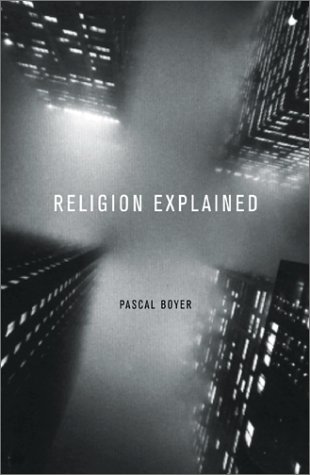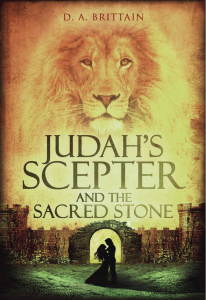I recently read something I liked on a blog run by someone (James Bishop) I would think of as a fundamentalist or certainly very conservative Christian. The article is Why I No Longer Hold to Inerrancy & The Need For A New Model of Inspiration. I was reminded so vividly of my own days of doubt and struggles with faith and attempting to be as honest as I believed I could be with myself.
James was faced with conflicts and at some point had the honesty to acknowledge that they were real:
As a Christian student in New & Old Testament Studies approaching the end of his time at university, I have discovered a number conflicts between conservative, fundamentalist Christian views of biblical inspiration (of which we will refer to as “classical inerrancy” or “inerrancy”) and what I have come to deem, more often than not, sound biblical scholarship.
He acknowledged that
these arguments require serious consideration especially if one wishes to take the Bible seriously and authoritatively.
Honesty. But the commitment remains. Faith is strong.
But here’s the part I particularly liked — with my emphasis:
Prior, however, I used to hold to inerrancy. I also once believed that every single challenge to the Bible was easily answered and refuted, and, for a time, thought that conflicts an inerrant view had with scholarship was a result of some anti-Christian “agenda” or “hate” towards Christianity. That was until I actually examined the alleged errors themselves, and soon realized that the answers provided on conservative apologetic websites were often grounded on little more than revisionist historical theories, fringe scholarly interpretations, fringe science, and contrived explanations attempting to explain away biblical inconsistencies.
What a welcome acknowledgement! The implication is that James Bishop no longer presumes that every challenge to the Bible is motivated by hate or an attempt to destroy Christianity.
It is a welcome acknowledgement because too frequently I read scholars and others accusing those who question the very foundations of the history of Christian origins of surely being driven, as “atheists”, by a hatred for Christianity and with a dedication to attempt to undermine all that is good about it. I refer in particular to those who entertain the possibility that Jesus was not a historical figure, of course.
Later in the post James explains why he parts ways with Bart Ehrman:
Long story short, as result of his discoveries that were in conflict with a conservative, inerrant view of biblical scripture, he [Bart Ehrman] is now one of Christianity’s biggest critics. He has sowed doubt in the lives of many Christians who have too come to realize the falsity of inerrancy. Inerrancy is spiritually dangerous in this way (see my argument in point 4e in this article). I have witnessed instances of Christians falling away from faith as a result of buying into the false dichotomy that one either embraces full blown inerrancy or rejects the Bible (a strawman caricature often embraced by both critics of the Bible/Christianity and inerrantists). Christian scholar Michael Bird captures this well explaining that this “means that if some young Christian comes across a passage of Scripture that is historically or ethically challenging, then they are faced with the choice between belief and unbelief,” and there lies the problem.
The point I want to make is that unlike Ehrman I wish to build up fellow believers in the faith. Unlike Ehrman, I also haven’t thrown in the towel, so to speak. I haven’t rejected Christianity or the inspiration and authority of the Bible.
I was not aware that Ehrman is one of Christianity’s biggest critics. In his recent Christmas posts he came across as still in love with the “fullness of meaning” of the Christmas story as found in the Bible. See Finding “unbelievable fullness of meaning” in the Christmas stories?
The problem, in James Bishop’s view, is that Christians who begin to see flaws in the Bible might toss it out completely. A fair reading of Ehrman’s views shows that even an agnostic or atheist can still express appreciation for the “unbelievable fullness of meaning” found in the Bible. Same for various Christ Myth theorists who have also expressed strong admiration for Christianity (e.g. Couchoud) and who even remain Christians (e.g. Brodie).
Reading James Bishop’s post is a déjà vu experience for me. It stirs old memories of my own past conflicts and strivings for both honesty and faith.
Many people struggle with the same conflicts. I think some of us find a solution to one particular conflict and rest satisfied with their resolution of it. Thus finding a new definition or understanding of what divine inspiration means is one way to reconcile certain facts about the Bible with one’s faith.
Others of us continue to question and don’t just stop when one conflict is resolved. They do not deny other conflicts as they arise. They confront them, and perhaps find new ways of reconciling opposites. Hence a few Christ mythicists, for example, find a way to maintain their belief in God and remain deeply devoted to the Christian message.
Some even go so far as to question why they believe in God at all. Is it true that morality cannot be justified or explained without God?
Some question the Bible and stop there when they find an answer. Some go further and question their faith and some might find a new set of definitions they are comfortable with there, too. Others go further still.
But at no point do any of us need to presume that those who go further with their questioning are necessarily driven by “some anti-Christian “agenda” or “hate” towards Christianity.” Or does that charge arise as a defence among those who cannot, for whatever reason, take their questioning any further? I can imagine believers having a very real fear of atheism and of atheism being a logical consequence of ongoing questioning. All I can say to those believers is, There is no need to fear. I can understand why someone only takes their questioning so far and no farther. We each stop where we feel most comfortable and it’s not for me to tell others they are wrong in choosing to find some solace in a level of religious belief in the short time they are on this planet.
I’d just like to reassure believers that being an atheist, and even having strong views about Christianity itself, does not mean we atheists all condemn individual believers for their choices or that our beliefs are driven by a “some anti-Christian agenda”.
Like this:
Like Loading...








